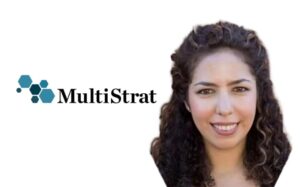Insurer Granted Summary Judgment After Insured Fails to Establish Claim is Covered
The federal district court granted the insurer's motion for summary judgment because the insureds failed to meet their burden of establishing the claim was covered by the policy. Cutchall v. Chubb Lloyd's Ins. Co. of Tex., 2024 U.S. Dist. LEXIS 234546 (S. D. Texas Dec. 31, 2024).
In September 2021, the insureds submitted a claim to Chubb for water damage. Chubb sent investigators who concluded that the moisture in the house was due to deterioration or deficiencies in the way the house was built, not storm damage. The insureds hired a public adjuster who determined that the damage to the house was caused by storm, wind, and hail. Chubb again inspected and again found that the roof damage was unrelated to wind or hail from any storm event.
In June 2022, Chubb sent a letter to the insureds explaining the results of its investigation, including that the damage to the house was due to different causes of loss including a hail event prior to 2020, roof distress unrelated to wind or hail, as built defects, changes in temperatures between the interior and the attic space, prior plumbing leaks, and localized movement. Chubb issued a $27,285.81 payment for covered damages. The insureds never cashed the check.
The insureds sued Chubb for breach of contract and bad faith. The insureds retained an expert who, at his deposition, could not consistently state the date of the loss.
Chubb moved for summary judgment. The court ruled that the insureds' breach of contract claim failed for two reasons: first they failed to point to evidence raising a dispute about whether their claim was covered; and second, the insureds failed to distinguish between covered and uncovered damages.
Chubb's experts found there were no hail or wind storms during the policy period that could have caused the damage. The insureds asserted that a hailstorm damaged their house on a specific date, but their evidence did not raise a genuine dispute about whether a storm capable of causing the alleged damage affected their neighborhood on the date or at another time during the policy period. The insureds' evidence contradicted itself as to when the alleged storm occurred because different dates were offered by various witnesses. Under the circumstances, the disagreement on the date of the alleged storm was sufficient to grant summary judgment to Chubb. The insureds failed to raise a genuine dispute about whether a hailstorm occurring during the policy period caused the damage.
The breach of contract claim also failed because the insureds' evidence identified uncovered water damage in the house, but the insureds did not provide any means for segregating the uncovered from the covered damage. If the insureds could not raise a genuine dispute as to how to segregate the uncovered and covered damages, summary judgment for Chubb on the breach of contract claim was required.
Finally, the record evidence presented no more than a bona fide coverage dispute which did not demonstrate bad faith.


